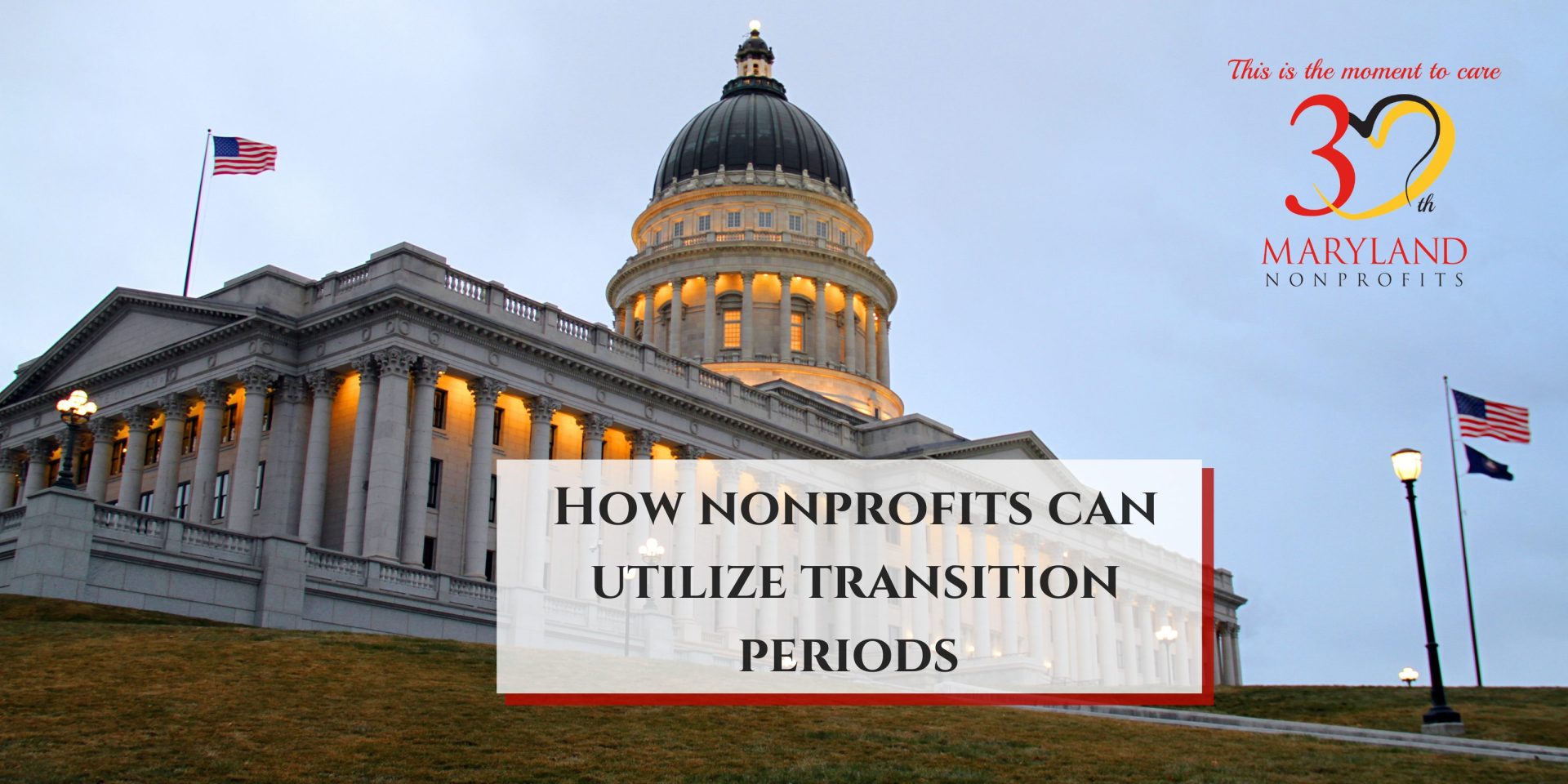The Panel on Transitions and New Administration was moderated by Veronica Cool (Chair of Maryland Latinos Unidos and CEO of Cool & Associates LLC, as well as a member of former Governor O’Malley’s Transition Team) and featured panelists Senator Martin G. “Marty” Madden (former Maryland State Delegate and Senator and former member of administrations under Governors Ehrlich and Hogan), Andrew G. “Drew” Vetter (Deputy Administrative Officer in Baltimore County Government and former transition team member and Deputy Legislative Officer to Governor O’Malley).
This transition in government is an enormous opportunity to promote the missions of nonprofits and to put our initiatives on the agenda. Drew Vetter urged nonprofits to act now, as transitions provide amazing opportunities to influence policy. The timing window is narrow, with a hectic and short transition time at both the legislative and executive levels. Those who get involved early may find themselves on transition teams and in committees that have sway over policy briefs and even suggest departmental appointments.
How to get involved
Senator Madden encouraged everyone to contact local elected officials and make themselves known to them. By reaching out to both incumbents and challengers, nonprofits across Maryland can garner positive relationships and educate candidates about the nonprofit sector and issues important to the sector. Nonprofits across Maryland should begin their correspondence with as many candidates as they can and write letters with recommendations for initiatives to be on their radar. It is all about relationships.
Drew Vetter stressed the importance of building relationships far in advance, early in the long process. These relationships show massive benefit when transition chairs are named, and new administrations seek leaders for their transition teams. Mr. Vetter encouraged nonprofit leaders to be active in the virtual space, be aware of initiatives at all levels of state government and be proactive in building relationships.
Both speakers stressed the essential nature of time in relationship-building. These relationships do not start in the election month.
Best Practices
For nonprofits to successfully leverage a transition period, they must act proactively and effectively. Senator Madden and Drew Vetter gave the following tips-
- Don’t assume your acronyms are familiar to the policy leaders
- Lawmakers read IRS Form 990’s—be sure to keep them up to date
- Keep a close watch on appointments at the department and staff level and build relationships
- Write open letters to candidates starting as soon as possible, and no later than September
- Build relationships at both legislative AND executive level
- Make succinct memos and communications; be concise, impactful, and use calls-to-action
- Interested members of the public can utilize relevant webpages to volunteer for committees or even the transition team for the governor-elect to inform policy work going forward– encourage your constituents to take advantage of volunteer opportunities and advocate
Now is a crucial time for nonprofits of all sizes to begin relationship-building to maximize impact on policy during this time of transition. Being a part of the Maryland Nonprofits Policy Council is a fantastic way to build those contacts across the state. Email Connor Wolfe if you would like an invitation and an opportunity to build relationships that will make a difference.
Additionally, you are invited to join Maryland Nonprofits and our members in our #Action2Care initiative, tying advocacy messaging together with advocacy efforts of the nonprofit community as a whole.

